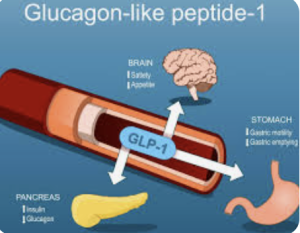In a retrospective cohort study Sioutas et al. from the Virginia Commonwealth University Health System, Richmond published in JAMA Neurology to evaluate whether GLP-1 receptor agonist (GLP-1 RA) therapy is associated with improved outcomes in patients with idiopathic intracranial hypertension (IIH), compared to conventional therapies.
Conclusions: In a large matched cohort drawn from a nationwide EHR database (TriNetX), GLP-1 RA therapy was significantly associated with lower medication burden, reduced symptoms (headache, papilledema, visual disturbances), fewer surgical interventions, and lower 1-year mortality. These benefits were not paralleled by significant differences in BMI, suggesting mechanisms beyond weight loss. Bariatric surgery yielded more weight loss but inferior clinical outcomes compared to GLP-1 RA use. The study suggests a promising role for GLP-1 RAs in IIH management, though causality remains unproven 1).
Summary of Findings
GLP-1 RAs were associated with:
↓ Medication burden
↓ Symptoms: headache, papilledema, visual disturbance
↓ Surgical interventions
↓ 1-year mortality
No significant difference in BMI change
Bariatric surgery achieved greater weight loss but inferior clinical outcomes
Authors’ Conclusion: GLP-1 RAs may provide benefit in IIH independent of weight loss, warranting further study.
Critical Review
1. Design Strengths:
Large nationwide dataset (TriNetX), increasing statistical power
Matching for baseline characteristics reduces—but does not eliminate—confounding
Clinically relevant composite endpoints
2. Methodological Caveats:
Retrospective EHR-based design is inherently limited by:
Missing or imprecise clinical detail (e.g. visual field data, CSF pressure)
